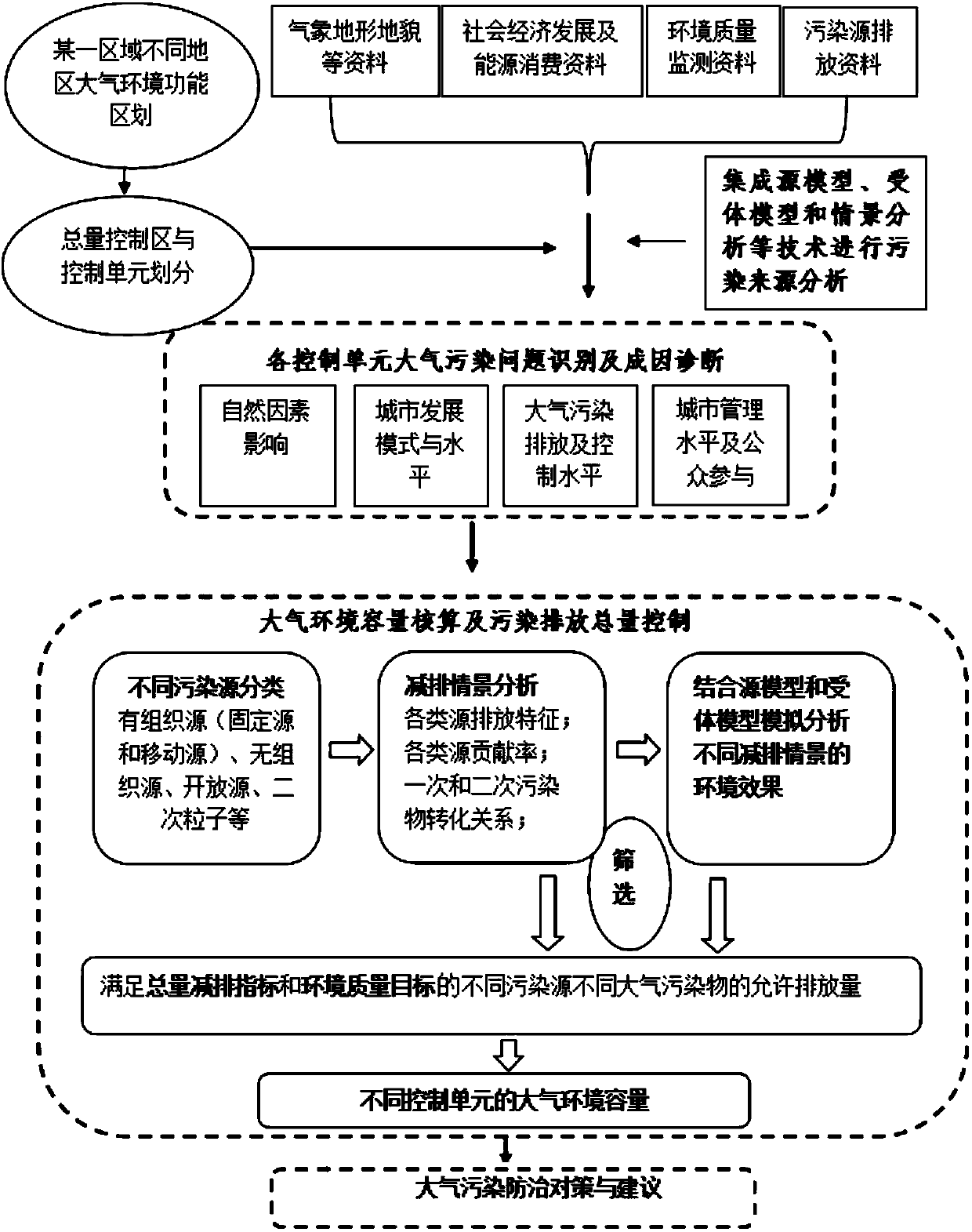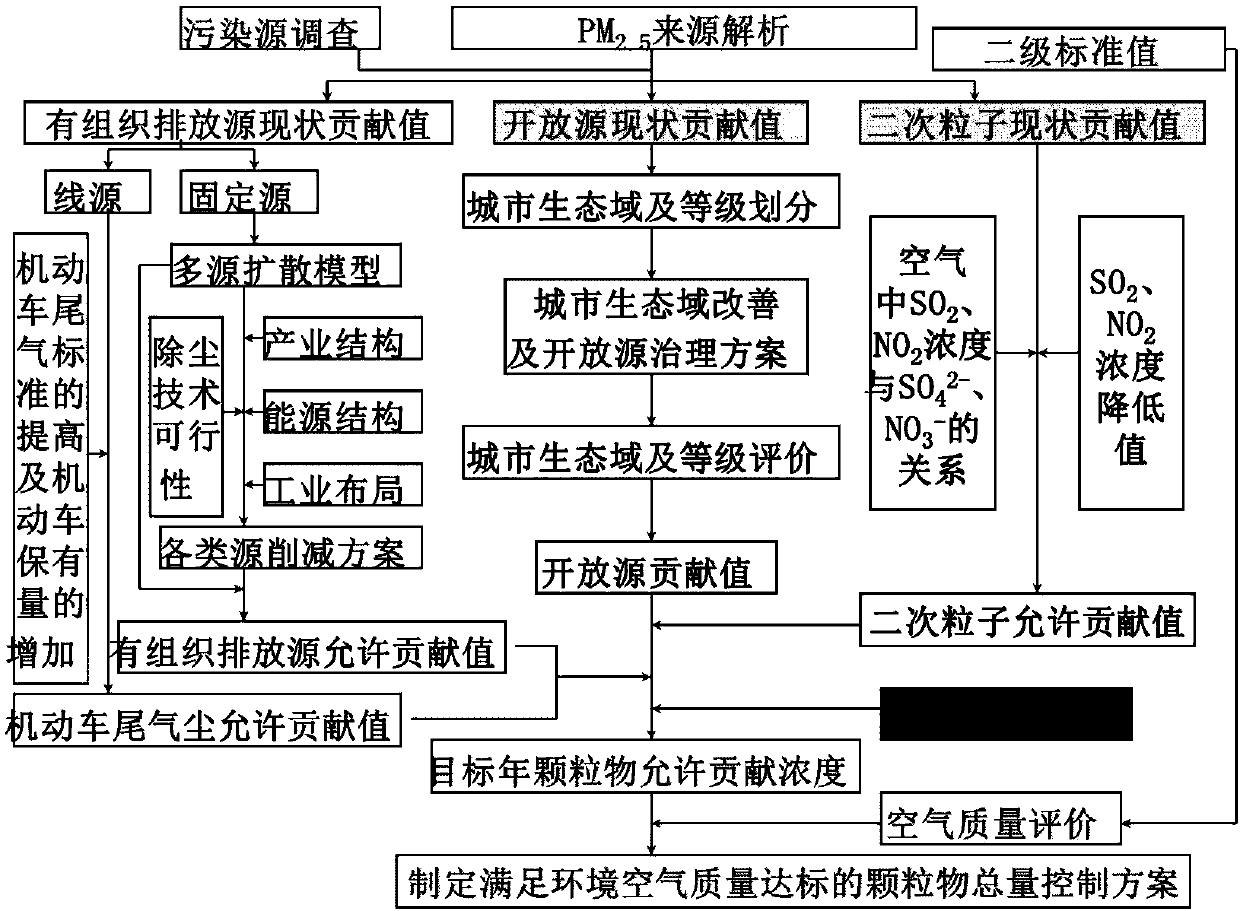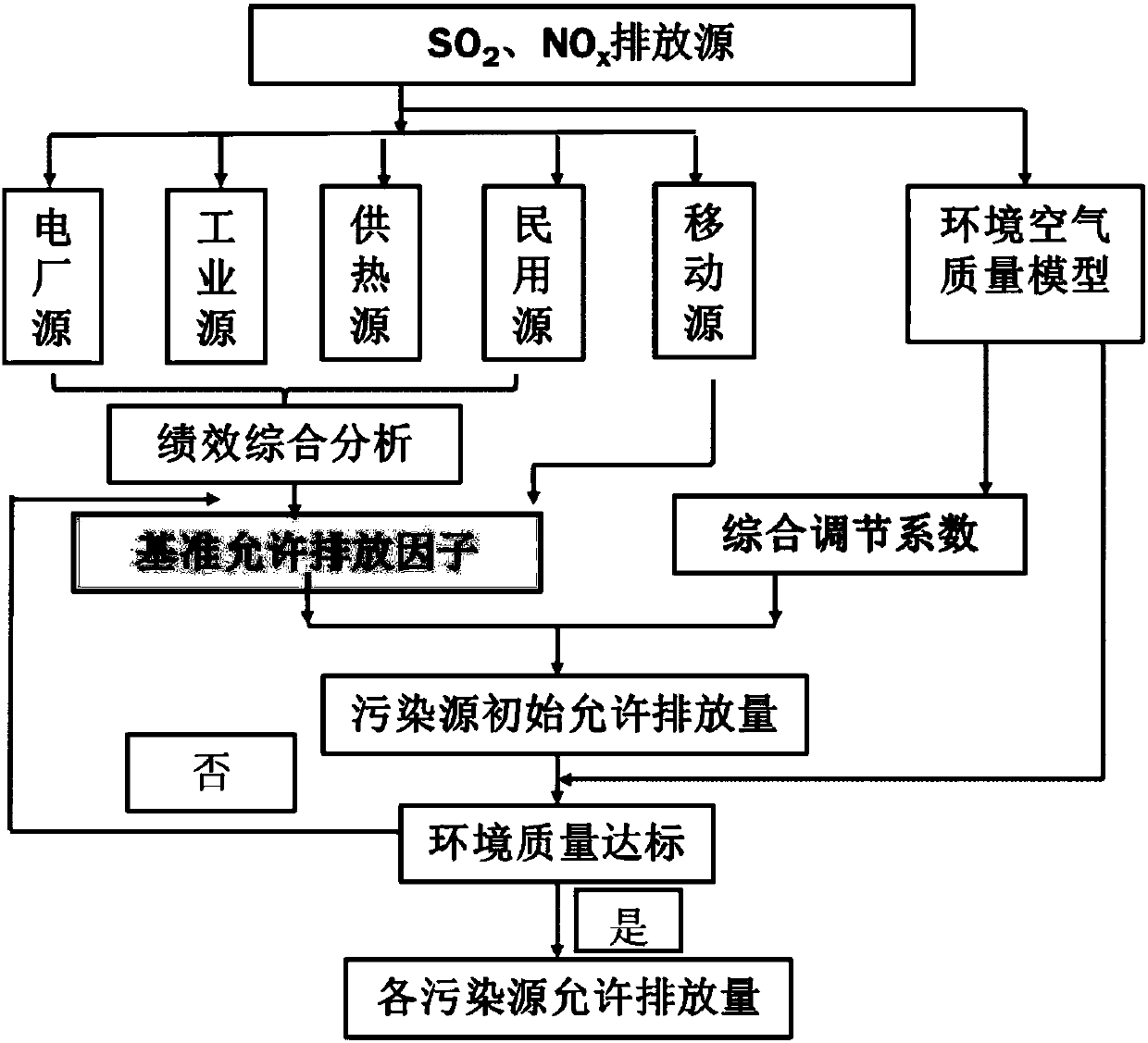Atmospheric environment capacity calculation method
An atmospheric environment and capacity technology, applied in the field of atmospheric environmental science, can solve the problems of concentration influence, disregarding the relationship between gaseous precursors and secondary particles, and the inability to estimate the environmental capacity of particles, so as to achieve the effect of improving efficiency
- Summary
- Abstract
- Description
- Claims
- Application Information
AI Technical Summary
Problems solved by technology
Method used
Image
Examples
Embodiment Construction
[0045] The present invention will be further described below in conjunction with the accompanying drawings and specific embodiments.
[0046] Such as figure 1As shown, the present invention relates to an accounting method for atmospheric environment capacity. The accounting method first needs to determine the research area and control factors, and divide the control units. Based on the study of relevant data such as meteorology, topography, social and economic development, environmental quality monitoring, and pollutant emissions, the source of air pollution in the region is analyzed, and the air pollution problems of each control unit are identified and the causes of causes are diagnosed. Use the air quality model to quantitatively simulate and analyze the impact of the main gaseous pollutant emission sources and the organized emission sources of particulate matter with a reliable source inventory on the ambient air quality, and use the receptor model to analyze the main prim...
PUM
 Login to View More
Login to View More Abstract
Description
Claims
Application Information
 Login to View More
Login to View More - R&D
- Intellectual Property
- Life Sciences
- Materials
- Tech Scout
- Unparalleled Data Quality
- Higher Quality Content
- 60% Fewer Hallucinations
Browse by: Latest US Patents, China's latest patents, Technical Efficacy Thesaurus, Application Domain, Technology Topic, Popular Technical Reports.
© 2025 PatSnap. All rights reserved.Legal|Privacy policy|Modern Slavery Act Transparency Statement|Sitemap|About US| Contact US: help@patsnap.com



